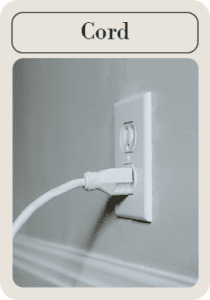What happens if you get hurt at work but not at the office? It’s a question more people are asking now than ever before. If you’re working from home and you get hurt, are you eligible for workers’ compensation? The obvious driver of the question is that many Americans continue working from home as employers adapt to a world that isn’t quite over the COVID-19 pandemic.
The answer will depend on the circumstances of your injury and where you make your workers’ compensation claim because each state differs. Location matters, especially with so many people working remotely.
Given that about a third of people have worked not just remotely but in a completely different state, just giving you my South Carolina viewpoint would feel incomplete. Instead, let’s examine the “workers’ comp working from home” question in South Carolina, North Carolina, and Florida through the eyes of attorneys who practice there. First, some perspective.
How the Pandemic Changed the Work Dynamic
According to Pew Research, for those whose jobs could be done remotely, only about 19% said they worked from home all or most of the time before the pandemic. Pew survey results from October 2020 put the number at 71%.
Obviously, there has been a dramatic change, with more than half of the people capable of working remotely shifting workplaces from the office to their homes. That’s millions of workers. Additionally, more than half of the workers surveyed said they would prefer to work from home full-time, and a third more would prefer to work from home most of the time.
There are many factors to consider regarding whether employees will begin to return to work, but under any scenario or set of facts, I believe it is clear the number of at-home employees has been permanently increased.
Hurt Working From Home: A South Carolina Perspective
Mike Eller, the Law Offices of James Scott Farrin
I currently practice workers’ compensation law in South Carolina (SC). I worked as defense counsel for insurers and employers in workers’ compensation cases for years before representing injured workers during the last decade. Knowing what the law looks like from both sides, I’ll give you my perspective.

South Carolina’s Two-Pronged Test for Remote Work Injuries
If you’re injured working from home, you will apply or interpret the same law as someone injured at a construction site, manufacturing job, warehouse job, and so on. In SC, you must satisfy a two-pronged legal test for your injury to be compensable.
To be compensable under the SC Workers’ Compensation Act, an injury by accident must:
1) “arise out of” and be
2) “in the course of” employment.
S.C.Code Ann. § 42–1–160 (Supp.2004).
What does this mean?
You’re not alone if the answer isn’t clear to you. Injured workers, employers, insurance carriers, attorneys, and the courts have all grappled with this very question since seemingly day one. Thankfully, SC Courts have provided guidance through their decisions over the years.

So, let’s talk about each “prong” individually.
Prong One: “Arising Out Of”
The South Carolina Supreme Court offered a detailed interpretation of “arising out of” in Douglas v. Spartan Mills in 1965:
More recently, the Court again addressed this exact same question of law in 2015 with their decision in Nicholson v. S.C. Dep’t of Soc. Servs., 411 S.C. 381, 384, 769 S.E.2d 1, 3 (2015). In Nicholson, the employee was at work on the way to a meeting when she tripped and fell. The circumstances of her employment required her to walk down the hallway to perform her responsibilities and in the course of those duties, she sustained an injury. The Court confirmed “there must be a causal connection between the employment and the injury; that is the test and the claimant need prove nothing more.” 411 S.C. 381, 384, 769 S.E.2d 1, 3 (2015).
More simply put, you must ask yourself: Is there a connection between the conditions of the work you were doing and the injury you sustained?
If the answer is yes, you’ve satisfied the first prong of the legal test, and the fact that you were working from home is largely irrelevant. Keep in mind, the law in SC intends to be inclusive – South Carolina is worker-friendly.
Prong Two: “In the Course Of”
To define the second prong, that an injury by accident must occur while “in the course of” your work, we can find guidance from a South Carolina Court of Appeals case decided in 2000:
Simply put, “in the course of,” refers to the time and location of an injured worker’s accident.
What facts do we need consider when thinking about whether an injury by accident at home occurred while in the course of your employment?
We have to determine where and when your accident occurred. Cleary, if you are working from home at the direction of your employer, you are working in the place where you reasonably may be while performing your job. However, where exactly you are located in your home when you have an accident could be very important to the courts.

What Makes South Carolina Worker-Friendly?
Workers’ compensation law in South Carolina is very similar to other states, notably North Carolina. However, the interpretation of the laws does differ, and those differences matter significantly in the context of the work-from-home-injury question. The result is that South Carolina, from my legal perspective, is worker-friendly. Two factors contribute to that perspective:
1) As I stated earlier, although injured workers and their lawyers may not always agree, it is certainly a fact that SC courts and SC Workers Compensation Commission have repeatedly ruled workers’ compensation law in SC is to be liberally interpreted in favor of coverage in order to serve the purpose of the Workers’ Compensation Act.
2) South Carolina doesn’t have a lot of case law (that is, law that exists because of court decisions instead of being created by legislature), and as a result, the law may not be quite as well-defined, meaning it is open to a much wider interpretation. Due to the lack of case law, employers and insurance carriers may feel paying a claim off (even if they don’t think it is compensable) is better than a bad result in court that would affect all future claims under the same set of facts.
What It Means for Remote Workers in South Carolina
I think South Carolina will do just as it always has: apply existing law and interpret it on a case-by-case basis. If you’re hurt working from home, your injury will certainly need to meet the prongs of the legal test to be compensable. Insurers may be more willing to negotiate here than in North Carolina, for example, but that’s no guarantee.
The best course of action if you’re injured working remotely is to file a claim, consult an attorney, and pursue workers’ compensation benefits.
Hurt Working From Home: A North Carolina Perspective
North Carolina workers’ compensation law does not have a specific set of rules for injuries that occur while working at home. There are a number of cases for those who travel as part of their work, but that’s another issue. If you’re injured working from home, you’ll access the system just as someone working from an office or plant.
Three Criteria for Compensation if You’re Injured While Working (From Home or Otherwise)
Chapter 97 of the North Carolina General Statutes presents three criteria you need to meet for your injury to be compensable. Your injury has to be: 1) the result of an accident, and 2) arise out of, and 3) in the course and scope of your work. If you can satisfy these three criteria, you generally have a compensable injury whether you were working from home or not.
Injury by Accident
To qualify for workers’ compensation benefits, the injury has to be the result of an accident. You can’t just be at work, have a heart attack, and automatically qualify for workers’ comp benefits. That’s not a typical accident. Just because you become ill at work doesn’t make it a workers’ compensation case. The same test applies if you’re working from home.
The part of the statute that sets these criteria also includes many exceptions from courts interpreting the law. North Carolina case law can also be a treasure trove of narrowing, broadening, and excepting the general rule.
“Arising Out Of and in the Course and Scope Of” in North Carolina
A compensable injury in North Carolina also has to arise out of and in the course and scope of your work. “Arising out of” refers to whether you were performing a work-related task when you were injured. “Course and scope,” in oversimplified terms, refers to time and place.

Working From Home and the Unexplored Interpretations of Law
As you get further from the actual work, the water gets muddy. We’re starting to get into that gray area remote workers’ claims may fall. Understand that being “in the office” is generally viewed as a benefit to your employer. If you have some accident while in the office when you’re not performing work, it may still be covered simply because you are in the office. Some might argue, working from home has benefits for the employer and is usually seen as a benefit to the workers. These things may factor in the way a court decides a case.
Work-from-home injuries are probably going to rely even more on the unique circumstances of the injury, which poses more issues, such as evidence. If you’re on your employer’s premises, you probably have coworkers who can act as witnesses. Someone is likely going to be around when the injury happens. If you’re at home, not so much.

But what if you tripped on the laundry basket? Unless there are laundry baskets in your office, that risk is unique to your home. Does that make a difference? That’s not yet entirely clear in North Carolina.
What It Means for Remote Workers in North Carolina
I can tell you that the more closely you can tie the accident and resulting injury to your work, the stronger your case will be. Workers’ compensation law in North Carolina is broad enough to cover remote workers’ injuries. I strongly advise anyone who’s suffered an injury while working from home to file a claim and consult with an attorney. Let us deal with the complications of the law.
Hurt Working From Home: A Florida Perspective
This will sound familiar. According to Title 31, Chapter 440 of Florida Statutes, a compensable workers’ compensation injury results from an “accident arising out of and in the course of employment.” At the very outset of the statute, the legislature stated its intent that:
There’s the implication of fairness and compromise, and those certainly exist. Now for the part you’ve all been waiting for: Florida is one of the few states with a directly related case on the record regarding work-from-home injuries and workers’ compensation.
The Valcourt Decision: A Work-From-Home Injury and the Repercussions
We’ve recently had a work-from-home injury case decision in Sedgewick CMS v. Valcourt-Williams, a case widely referred to as Valcourt. In this case, Ms. Valcourt-Williams tripped over her dog in her kitchen while reaching for a coffee cup during work hours and claimed workers’ compensation.
This case essentially forced the 1st District Court of Appeals in Florida to explore and define a few things specific to the remote employee and what constitutes a compensable injury. Without diving too deep into the court’s logic and the cases they used to guide their decisions, here’s a general summation of what the court said:
Here, the court chose to focus on this case’s unique circumstances, deciding that the line between home and work was not material to the question at hand.
This refers to “arising out of and in the course of” – the two prongs of the law’s compensability test. Did the injury arise out of employment and occur in the course and scope of the job? The court did not think so in reversing the lower ruling:
She met the “arising out of prong” in this case. She was working (more on that below), but the injury was not in the course and scope of her job. The risk was personal to her and did not originate with her work.
Personal Comfort Doctrine and Compensable Injuries
Like many if not most other states, Florida has something called a “personal comfort doctrine.” Essentially, things you do to attend to your health and comfort at work – like getting a beverage, using the restroom, or even walking around and stretching your legs – are generally considered incidental to your employment.

Valcourt may narrow the scope of the personal comfort doctrine or invite a more precise definition of the acceptable risks allowed under that doctrine. In other words, we’re going to end up arguing about it in court.
The Legal Evolution of Remote Workers’ Compensation: Tough Questions Ahead
For remote workers, the law is changing right before your eyes. The goalposts, in a sense, are moving. Let’s take another example. You’re working at home from your desk, and you stand up to get a glass of water. But, you have your cell phone at your desk plugged in. You trip on the charging cable, fall, and suffer an injury. Is that compensable?
Defense attorneys will cite Valcourt and say no. That was your cell phone, so it wasn’t work-related. Anything outside of sitting at your desk could be challenged despite the personal comfort doctrine. Yeah, you fell on the way to the bathroom, but that charging cable was your problem. Or that printer cord. And so on and so on.
What It Means for Remote Workers in Florida
I foresee some challenges coming, though how many will depend on both sides’ appetite for litigation. However, I don’t want any remote workers who have suffered injuries to get discouraged.
As cliché as it may sound, every case truly is unique. If you’re injured while working from home, you should file a claim. I’d recommend contacting an attorney to help you.
Special Rules: Work Sites, Coming and Going, and a Few Cases From Across the Country
Workers’ compensation law is generally riddled with exceptions and special rules that clarify other rules. The law has to draw the line somewhere – different states may draw that line in different places. For example, most states draw a line between worksites and non-worksites to set boundaries for legal decisions. In South Carolina and other states, we have what’s known as the “Coming and Going” rule, though it’s called a few different things.
“Coming and going” applies to the travel between work and non-work. If you’re on your way between a non-worksite and a worksite (or vice versa), you’re on your own time, and any injury you suffer “coming and going” is not compensable. That’s why you generally can’t claim workers’ compensation due to a car accident on the daily drive to the office.

While Florida has Valcourt, there are no specific case decisions in South Carolina that directly address workers’ compensation claims from remote employees. Still, in the spirit of remote work, let’s look at other special rules and how they’re handled in cases across the country.
A California Example – Coming and Going and Secondary Work Sites
Back in 1985, in Santa Rosa Junior College v. Workers’ Comp. Appeals Bd., the California Supreme Court reversed workers’ compensation death benefits for the widow of a college professor. That professor did a lot of work from home, often returning from work late at night. He was killed in a car accident while traveling between his office and his home.
In the court’s opinion, the question was whether or not the professor’s decision to work at home and the implied requirement that he work from home created a second job site. There was no express requirement to do the work at home, meaning that doing so was convenient to the worker, so the court ruled his death was the result of a non-compensable injury.
It’s important if you work from home part-time. Do you have a secondary work site in your home? Are you “coming and going” or traveling between those work sites? If you’re not in California, what might the courts in your state decide?
A Pennsylvania Example – Secondary Work Sites and What It Means to Be “At Work”
Another case that directly addresses injuries working from home is Verizon Pennsylvania Inc v Workers Compensation Appeal Board Alston, decided by the Commonwealth Court of Pennsylvania in 2006.
The worker in this case spent three days in their employer’s New Jersey office each week and two working in her home office. When she went to get a drink from her kitchen while on a work call, she fell down the stairs and suffered a severe neck injury. The surgery for that injury produced a scar, and the worker claimed workers’ compensation for disfigurement.
I chose this case because of this paragraph. This exact situation is going to play out in courts across the country if it isn’t already. Without specific statutes or case law to guide them, courts will apply the existing laws as best they can. In this case, the court ruled:
The court didn’t even need to apply the personal comfort doctrine. The injured worker was literally on the phone working when the injury occurred.
Aside: Remote Worker Injuries and the Independent Contractor Question
If you’re an independent contractor, the rules are different. There are legal criteria that define who is and is not exempt from workers’ compensation coverage, and independent contractors generally are not covered. An employee manual is not an employment contract, even if you’re required to sign it.
Regardless of your state, if you’re hurt while working from home and have been told you’re not eligible for benefits, you should contact a workers’ compensation attorney and discuss your situation with them.
A Maryland Example: Coming and Going, and Defining a Work Site
In 2019, the Maryland Court of Appeals issued a ruling in Schwan Food Co. v. Frederick. The case involved a man who slipped and fell as he was heading to drop his child off at daycare on the way to his first work appointment.
The court concluded that the injured man was moving from work site to work site because he worked from home – his employer had no local offices. The part of the case that is of interest to remote workers is that the court devised a three-part test to determine whether the home is a worksite. The court based the test on existing legal text and the rulings of other appellate courts:
An Oregon Example: Implication Versus Necessity in Working From Home
In 2011, the Oregon Court of Appeals rendered a decision in Sandberg v. JC Penney Co. Inc. In this case, a worker was injured while swapping work materials between her van and her garage. Her employer had a studio where she and other employees worked one day per week.
As part of her job as a decorator, she had to have samples of all manner of materials to show to customers whom she drove to meet in her van. She’d been reprimanded previously for not having complete sale materials samples, which the court notes essentially required her to have an office in her van.
Unfortunately, all the materials she might require would not fit in the van all at once, which led to her storing them at the studio. Her employer also instructed her to keep the materials at home. She was injured when she had to avoid her dog and fell while moving materials. The court sided with the worker:
Furthermore, the court also gave some insight into the idea of “control” regarding a space. When an employer requires a worker to perform tasks off its premises, those other premises become a worksite, and injuries that happen there follow the rules as though they happened on the employer’s premises, according to the Oregon court.
That hits the COVID nerve pretty hard. What if your employer can’t give you a place to work? Many people were required to work from home, or they would not have been able to work at all. This case was decided prior to the COVID pandemic, but the implications for remote workers during and after the pandemic are clear.
Workers’ Compensation Working From Home – This Is Just the Beginning
Working from home, working remotely, teleworking, telecommuting – whatever you call it – is a fact of life now more than ever. The questions raised by injuries suffered by remote workers are legally complex, and the answers will differ from state to state. With the sheer number of people who have made the shift from office to home, it is only a matter of time before injury claims come, cases are filed, and courts have to make decisions.

For a while, at least, a lot of us were remote workers. Some of us still are, at least some of the time. We may not be in the office as much, but we’re all in the same boat, navigating muddy legal waters.
You May Also Be Interested In
Will I Get Workers’ Comp Benefits if I Got Hurt on the Job in Another State?
Hurt While Driving for Work in North (and South) Carolina
Workers’ Compensation Laws in (NC) North Carolina: What’s Covered








